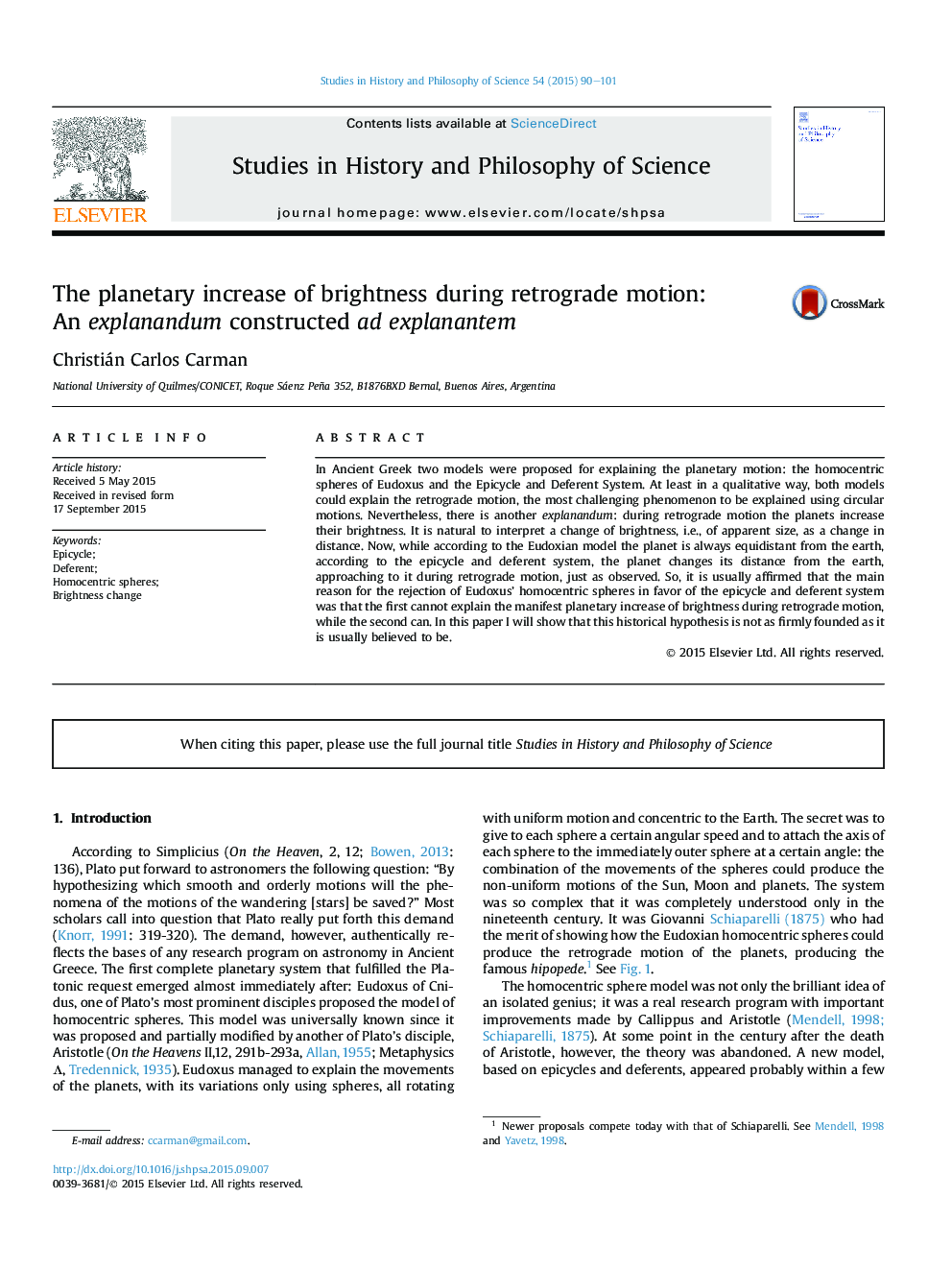| کد مقاله | کد نشریه | سال انتشار | مقاله انگلیسی | نسخه تمام متن |
|---|---|---|---|---|
| 1160216 | 1490328 | 2015 | 12 صفحه PDF | دانلود رایگان |
• Most planets don't change perceivable their brightness during retrograde motion.
• Eudoxian model wasn't abandoned because it couldn't explain the change of brightness.
• It wasn't a merit of epicycle model to explain the (non-real) change of brightness.
In Ancient Greek two models were proposed for explaining the planetary motion: the homocentric spheres of Eudoxus and the Epicycle and Deferent System. At least in a qualitative way, both models could explain the retrograde motion, the most challenging phenomenon to be explained using circular motions. Nevertheless, there is another explanandum: during retrograde motion the planets increase their brightness. It is natural to interpret a change of brightness, i.e., of apparent size, as a change in distance. Now, while according to the Eudoxian model the planet is always equidistant from the earth, according to the epicycle and deferent system, the planet changes its distance from the earth, approaching to it during retrograde motion, just as observed. So, it is usually affirmed that the main reason for the rejection of Eudoxus' homocentric spheres in favor of the epicycle and deferent system was that the first cannot explain the manifest planetary increase of brightness during retrograde motion, while the second can. In this paper I will show that this historical hypothesis is not as firmly founded as it is usually believed to be.
Journal: Studies in History and Philosophy of Science Part A - Volume 54, December 2015, Pages 90–101
